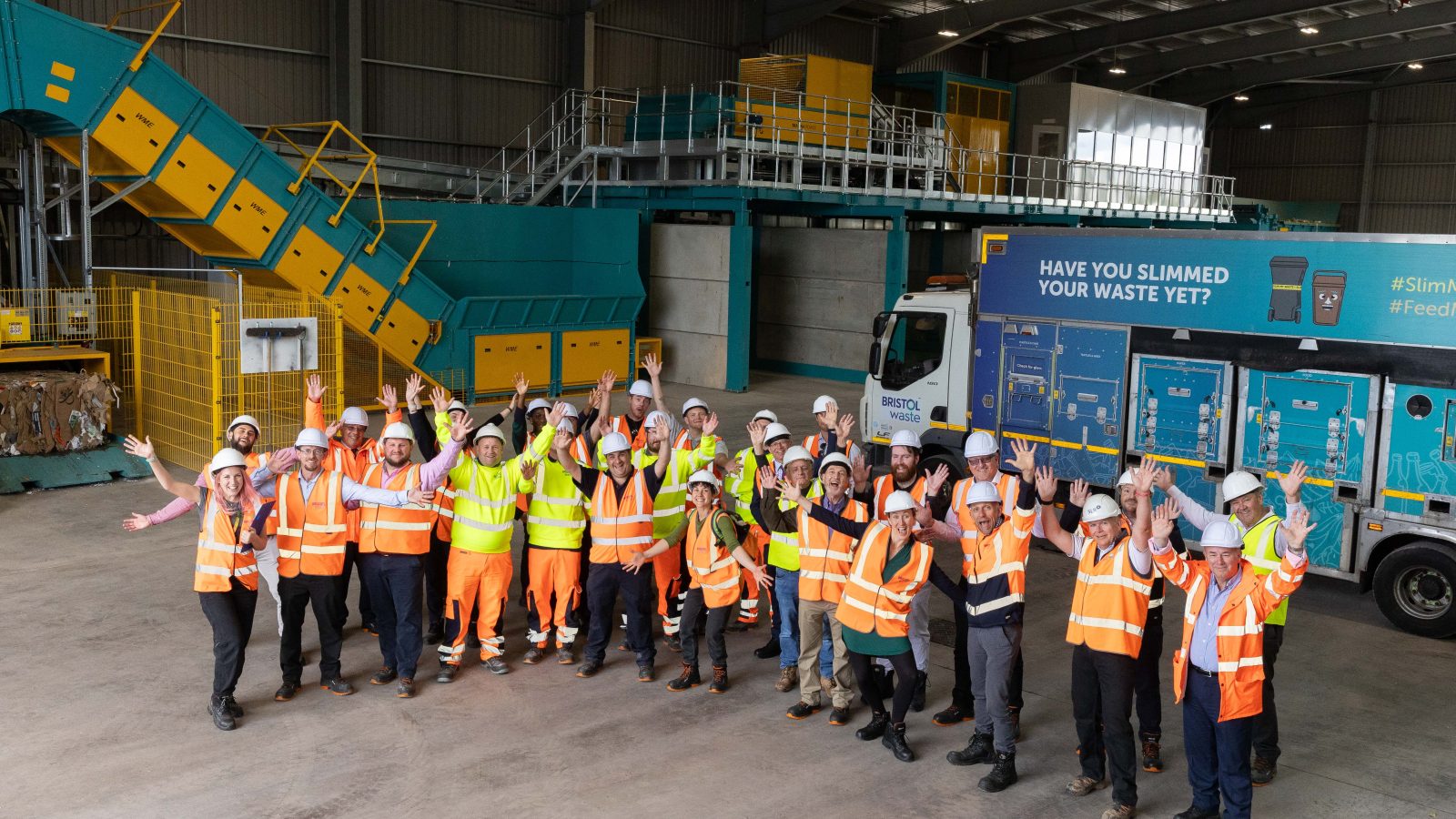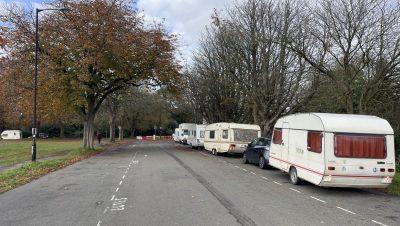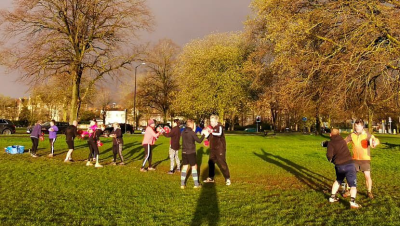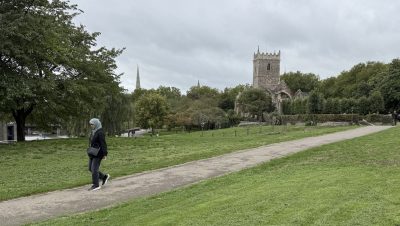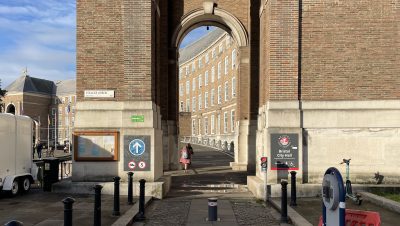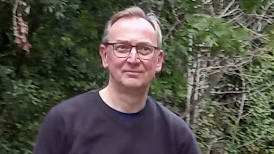News / recycling
Bristol Waste celebrates opening of new £5m recycling facility
Bristol Waste in partnership with Bristol City Council have opened a new Materials Recycling Facility (MRF) in Avonmouth.
The new facility increases recycling capacity for the city. Until now, facilities have been based in south Bristol, but the addition of an MRF in Avonmouth will allow Bristol Waste to serve north Bristol more efficiently, as well as Somerset and South Gloucestershire.
This will reduce mileage by 120 miles per day, or 31,000 miles per year, significantly decreasing the company’s carbon footprint.
is needed now More than ever
Richard Williams, the managing director of Bristol Waste, said: “Bristol’s long been a leader in recycling across England and we’ve held the top spot for recycling for the last eight years. We really want to make sure that Bristol continues in that vein.”
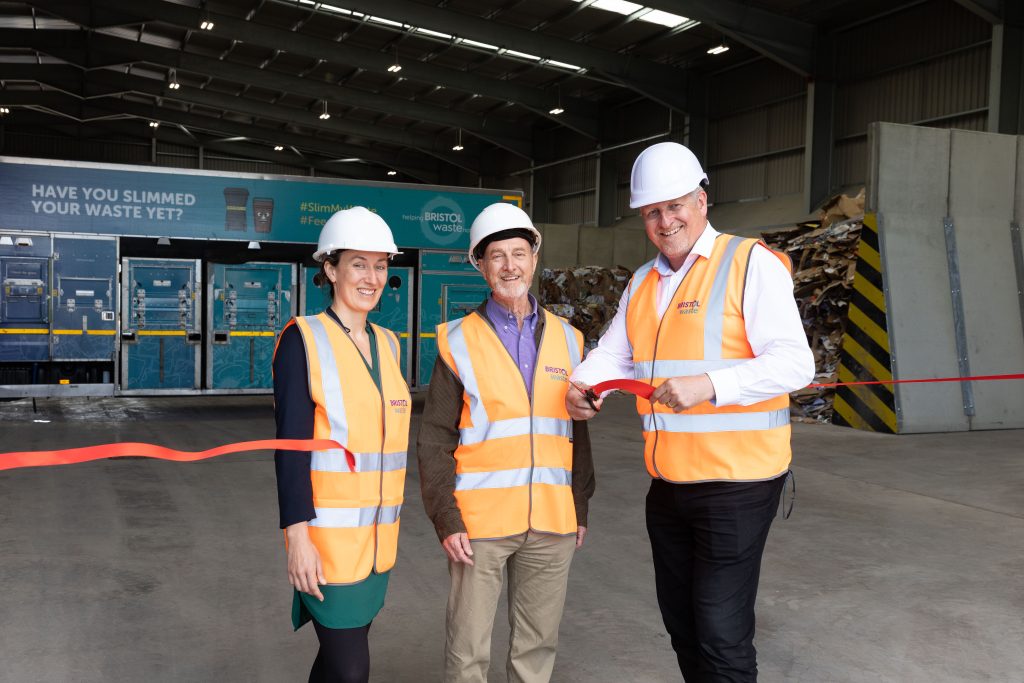
Bristol Waste invites residents to consider how they can improve their own recycling – (l-r) councillor Heather Mack, councillor Martin Fodor and Bristol Waste managing director Richard Williams
Unlike their St Philip’s centre, the new Avonmouth facility can sort cans and plastic at the same time as baling cardboard. It can process six tonnes of plastics and cans per hour, equivalent to a fully-grown African elephant.
The new building can hold 85 trucks and allows for extra scope for unloading and processing cardboard. Altogether, this extra capacity will ensure that items are processed more efficiently.
While the St Philip’s centre focuses on domestic recycling, the Avonmouth centre has the capacity to recycle more commercial waste and serve more of the city’s businesses.
“We’re looking to simplify wherever possible our recycling regimes and make it easier for the residents to recycle,” said Williams.
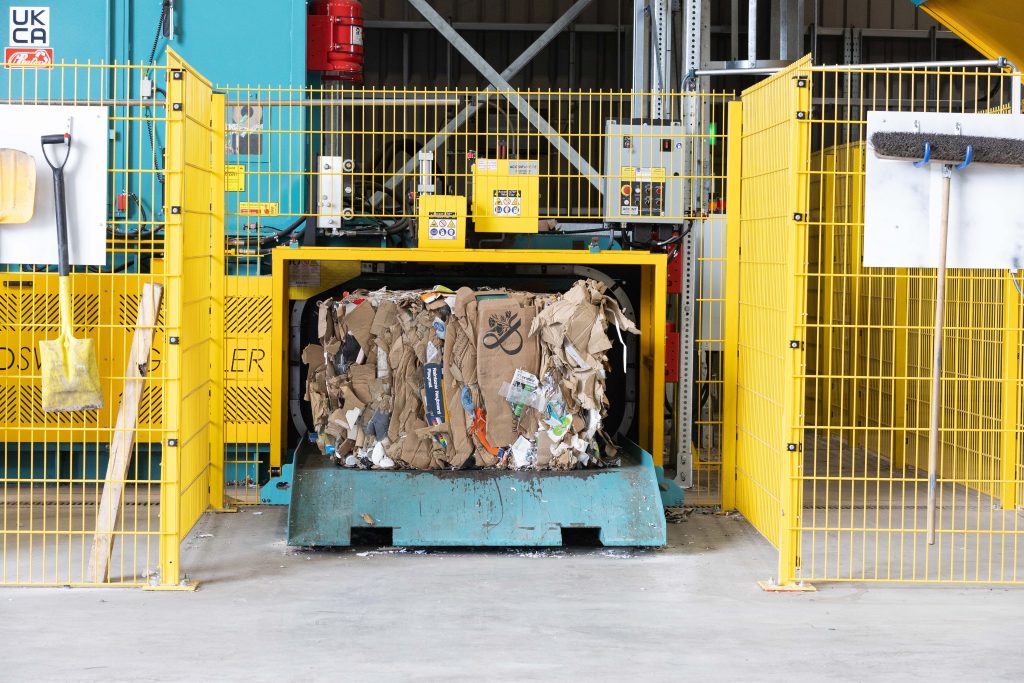
The new facility brings extra capacity for recycling cans, plastics and cardboard
In July 2024, Bristol Waste joined with Pura NappiCycle to launch a nappy recycling trial in pockets across the city.
This trial was embraced by residents and, to date, 300,000 used nappies have been collected across the city. Bristol Waste now hopes to reach 500,000.
They want to encourage residents to recycle as much as possible. Currently, only 47 per cent of black bins are filled with non-recyclables and the remaining 53 per cent is filled with food and other recyclables. Their aim is to take these recyclable products out of black bins.
When food waste is recycled it goes into anaerobic digesters to create power and energy, which heats and lights around 2000 homes across the city per year. If it goes into black bins, it simply creates more harmful methane and rots away without contributing to a circular economy.
With the help of the MRF in Avonmouth and their relationship with Bristol City Council, Bristol Waste hope to ensure a greater resilience for Bristol recycling.
All photos: Bristol Waste
 Our newsletters emailed directly to you
Our newsletters emailed directly to you